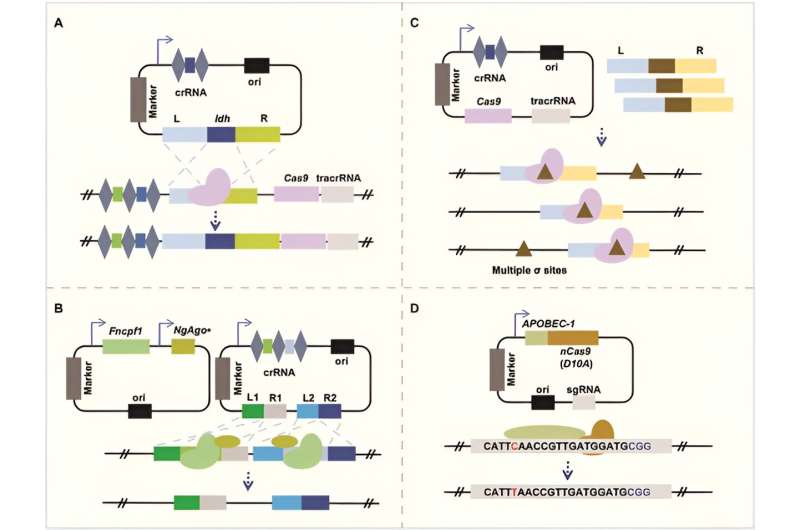This article has been reviewed according to Science X's editorial process and policies. Editors have highlighted the following attributes while ensuring the content's credibility:
fact-checked
trusted source
proofread
Revolutionizing probiotic therapy: The emergence of CRISPR-Cas engineered strains

Probiotics, defined as live microorganisms beneficial to health, have shown promise in areas like anti-inflammatory activity and brain function, etc. However, challenges remain due to variability in tolerance and colonization among species and strains. Recent advances in genome engineering, including CRISPR-Cas, have facilitated the creation of novel probiotic strains, offering potential treatments for metabolic disorders, inflammation, infections, and cancer.
The CRISPR-Cas system, originating as a prokaryotic immune response, has been refined into a powerful genome editing tool, with ongoing discoveries expanding its capabilities and classifications.
In September 2023, BioDesign Research published a review article titled "CRISPR-Cas-Based Engineering of Probiotics."
This review delves into the distribution and genome editing of CRISPR-Cas systems in probiotics, highlighting their pivotal role in disease treatment and the challenges in creating genetically engineered probiotics. CRISPR-Cas systems are prevalent in a significant portion of archaea and bacteria, with varying occurrences in different probiotic species like Lactobacillus and Bifidobacterium.
These systems, especially Cas9 nucleases, have revolutionized genetic engineering in probiotics, facilitating precise and targeted modifications. In Lactic Acid Bacteria (LAB), leveraging endogenous CRISPR-Cas systems has led to efficient genome editing, while Bacillus subtilis and yeast have seen extensive CRISPR-Cas9-mediated modifications for industrial applications.
Other probiotics, such as Bacteroides and Escherichia coli Nissle 1917, have been genetically modified for enhanced therapeutic efficacy. The therapeutic application of these engineered probiotics shows great promise in treating various diseases, including cancer, inflammatory bowel disease, and obesity, while also combating antibiotic resistance.
However, challenges such as efficient delivery systems, strain screening, minimizing toxicity, and regulatory compliance remain key areas for future optimization to fully exploit CRISPR-Cas-engineered probiotics in health industries.
More information: Ling Liu et al, CRISPR-Cas-Based Engineering of Probiotics, BioDesign Research (2023). DOI: 10.34133/bdr.0017


















